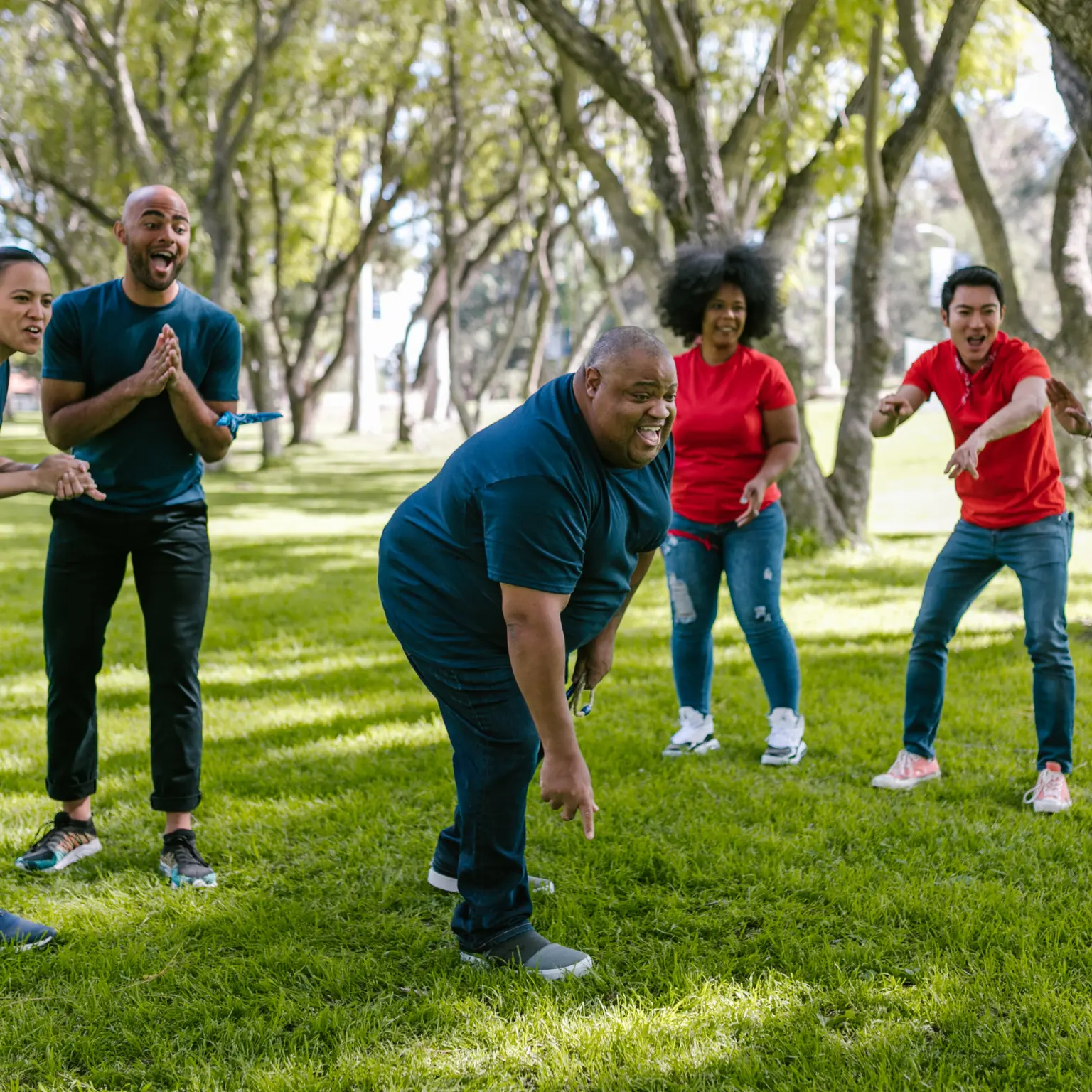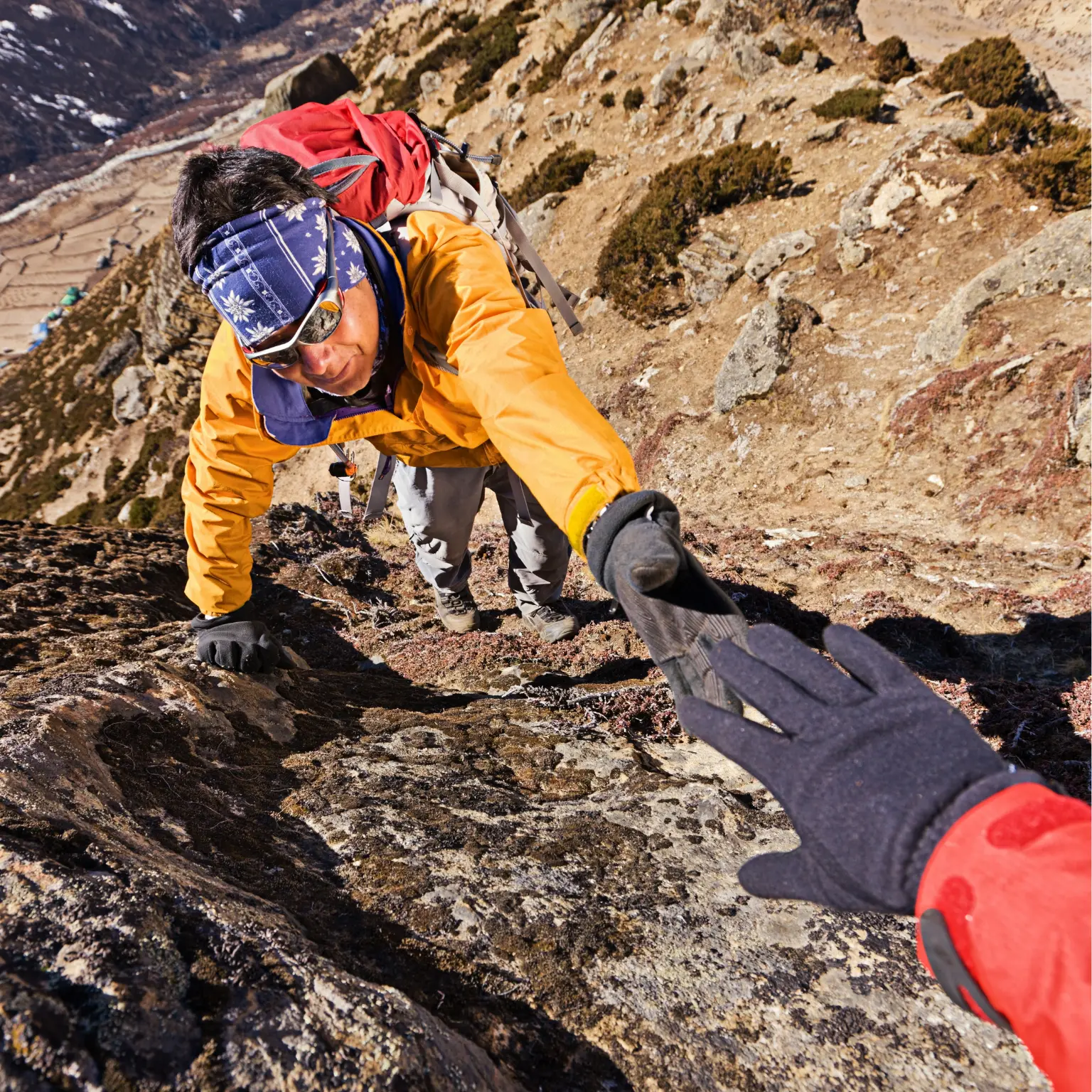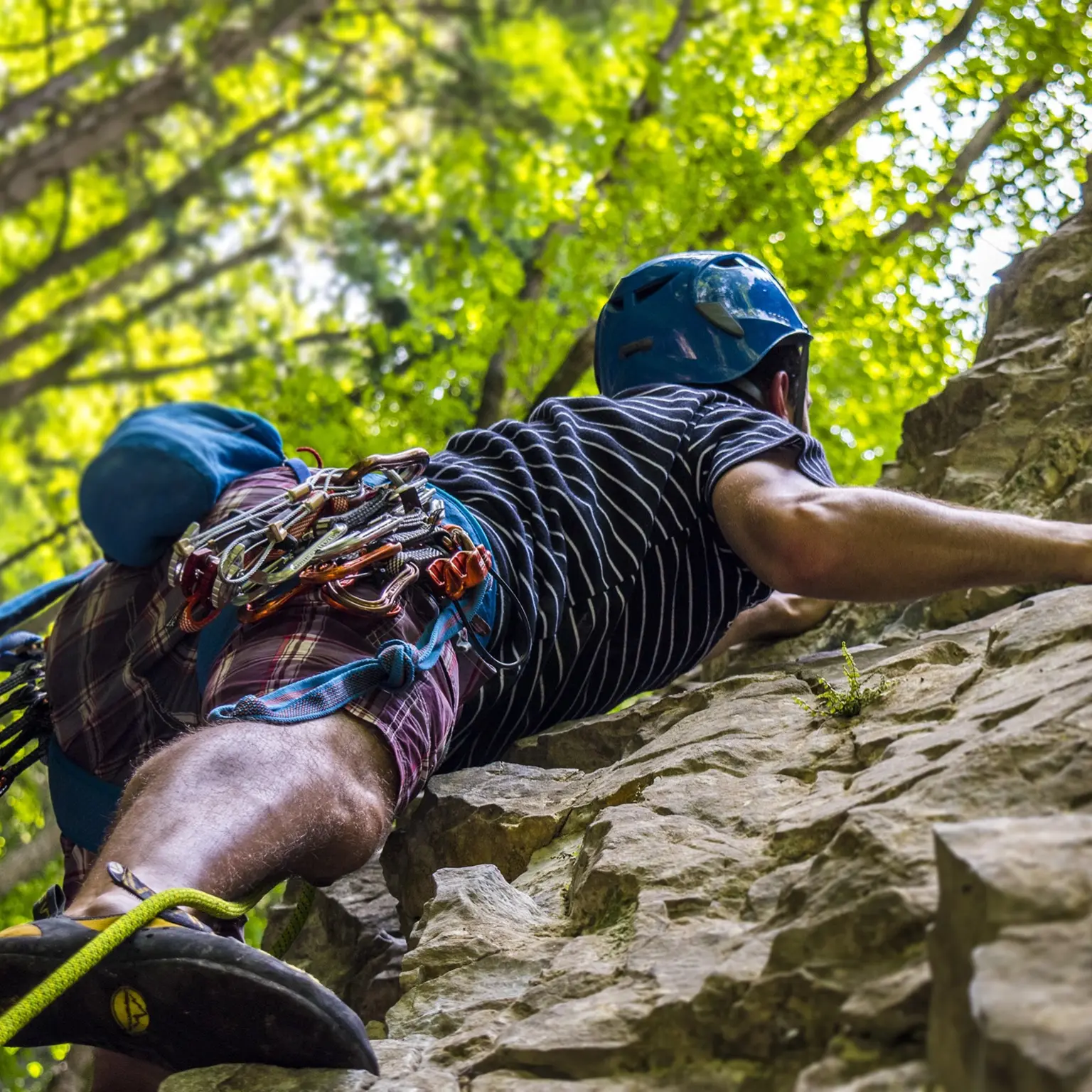Embrace the Outdoors: 10 Fun Activities for Health & Happiness

Imagine this: You’re sitting on a sun-drenched rock, the scent of pine needles filling your nostrils. A gentle breeze rustles the leaves, and birdsong fills the air. You close your eyes, take a deep breath, and feel a wave of calm wash over you. This isn’t just a scene from a nature documentary; it’s a simple outdoor experience that holds the power to transform your health and happiness.
Did you know that spending just 20 minutes immersed in nature can significantly reduce stress hormones like cortisol? Or does exposure to sunlight trigger your body to produce vitamin D, a crucial nutrient for mood regulation and bone health? It’s true! Outdoor activities aren’t just a way to pass the time; they’re a proven pathway to a healthier, happier you.
In this guide, we’ll explore ten fun outdoor activities that can boost your physical and mental well-being. From heart-pumping hikes to peaceful moments of gardening, we’ll uncover the science behind why nature makes us feel so good and offer practical tips for incorporating these activities into your routine. So, lace up your hiking boots, grab your sunscreen, and get ready to discover the joys of outdoor living.
Table of Contents
Key Takeaways
- The Science of Nature: Spending time in nature isn’t just enjoyable; it’s scientifically proven to reduce stress, improve mood, and boost both physical and mental health. Whether it’s the fresh air, sunlight, or the sights and sounds of the natural world, outdoor environments have a profound impact on our well-being.
- Diverse Outdoor Activities: There’s an outdoor activity for everyone, regardless of your fitness level or interests. Hiking, cycling, kayaking, gardening, outdoor yoga, team sports, birdwatching, stargazing, outdoor photography, and picnics all offer unique benefits and can be tailored to your preferences.
- Practical Tips and Guidance: Before embarking on any outdoor adventure, prioritize safety, start slowly, listen to your body, and respect the environment. Remember to pack essentials like water, snacks, and appropriate gear. For those new to outdoor activities, consider taking lessons or joining a group to learn the ropes and connect with like-minded individuals.
The Science Behind Outdoor Activities and Wellbeing
Why Nature Makes Us Happy & Healthy?
The connection between nature and well-being isn’t just anecdotal; it’s backed by a growing body of scientific evidence. Let’s delve into the fascinating ways in which outdoor activities can positively impact our health and happiness:
Stress Reduction
- Cortisol, the stress hormone, decreases significantly after just 20 minutes of exposure to nature. This explains why a walk in the park or a hike in the woods can leave us feeling calmer and more centered.
- Natural environments activate our parasympathetic nervous system, which is responsible for the “rest and digest” response, counteracting the stress-induced “fight or flight” response.
Mood Enhancement
- Sunlight exposure triggers the production of serotonin, a neurotransmitter associated with feelings of happiness and well-being. This is why spending time outdoors can naturally lift our spirits.
- The sights, sounds, and smells of nature have a calming and restorative effect on our brains. Research has shown that viewing scenes of nature can reduce activity in the amygdala, the brain’s fear center.
Physical Health Benefits
- Outdoor activities encourage physical movement, which is essential for cardiovascular health, weight management, and overall fitness. Whether it’s a brisk walk, a bike ride, or a game of frisbee, getting active outdoors is a fun way to stay in shape.
- Exposure to sunlight provides us with vitamin D, crucial for bone health, immune function, and mood regulation. Spending time outdoors can help ensure we get our daily dose of this essential nutrient.
Mental Health Benefits
- Spending time in nature has been linked to reduced anxiety and depression symptoms. The calming effect of nature can help ease racing thoughts, promote relaxation, and improve overall mood.
- Outdoor activities can also boost self-esteem and confidence. Achieving a challenging hike or learning a new outdoor skill can give us a sense of accomplishment and empowerment.
Cognitive Benefits
- Nature has a restorative effect on our attention span and focus. Studies have shown that spending time in green spaces can improve concentration and reduce mental fatigue.
- Outdoor activities can also stimulate creativity and problem-solving skills. The natural world offers endless opportunities for exploration and discovery, sparking our imaginations and encouraging innovative thinking.
The science is clear: spending time outdoors is not just a luxury; it’s a necessity for our overall health and happiness. Let’s explore some specific outdoor activities that can help you reap these benefits and more.
10 Fun Outdoor Activities to Boost Your Health & Happiness
Now that we’ve explored the science behind why nature is so beneficial, let’s dive into ten specific outdoor activities you can try to enhance your well-being:
Hiking and Trekking
Benefits
- Cardiovascular fitness: Hiking gets your heart pumping and improves blood circulation, reducing the risk of heart disease and stroke.
- Muscle strength: Tackling inclines and uneven terrain engages various muscle groups, particularly your legs and core.
- Stress reduction: The combination of physical activity, fresh air, and scenic views is a powerful stress buster.
- Connection with nature: Immersing yourself in the natural world can leave you feeling refreshed, grounded, and more connected to the planet.
Tips
- Choose the right trail: Start with easier trails if you’re new to hiking, and gradually challenge yourself with longer or steeper hikes as your fitness improves.
- Pack essentials: Always carry plenty of water, snacks, a map or GPS device, and a first-aid kit. Dress appropriately for the weather and terrain.
- Hike with a buddy: Hiking with a friend or group not only enhances safety but also adds a social element to your outdoor adventure.
Cycling
Benefits
- Cardiovascular fitness: Cycling is a great way to get your heart rate up and improve your endurance.
- Leg strength: Pedaling strengthens your quadriceps, hamstrings, and glutes.
- Low-impact exercise: Cycling is gentler on your joints than running, making it a good option for people with joint pain.
- Exploration: Cycling allows you to cover more ground and discover new places, whether it’s your local neighborhood or scenic trails.
Tips
- Start slow: Begin with shorter rides and gradually increase the distance as you get stronger.
- Wear a helmet: Always prioritize safety by wearing a properly fitted helmet.
- Follow traffic rules: If cycling on roads, obey traffic signals and ride in designated bike lanes when available.
- Join a group: Cycling with others can provide motivation, camaraderie, and a sense of community.
Kayaking or Canoeing
Benefits
- Upper body strength: Paddling works your arms, shoulders, and back muscles.
- Core engagement: Maintaining balance and stability in a kayak or canoe requires core strength.
- Stress relief: The rhythmic motion of paddling and the serene environment of the water can be incredibly calming.
- Appreciation for aquatic ecosystems: Kayaking or canoeing allows you to explore rivers, lakes, and oceans, connecting you to the diverse life that thrives in these environments.
Tips
- Take lessons: If you’re a beginner, consider taking lessons to learn proper paddling techniques and safety procedures.
- Wear a life jacket: Always wear a personal flotation device (PFD) when on the water.
- Check weather conditions: Be aware of wind, currents, and potential storms before heading out.
- Paddle with a partner: Kayaking or canoeing with a friend enhances safety and provides a shared experience.
Gardening
Benefits
- Light exercise: Digging, weeding, planting, and watering all involve physical activity that can improve your strength, flexibility, and endurance.
- Stress reduction: Studies have shown gardening can lower cortisol levels and promote relaxation. The act of nurturing plants and watching them grow can be incredibly therapeutic.
- Connection to nature: Gardening allows you to get your hands dirty and interact with the earth, fostering a deeper appreciation for the natural world.
- Potential for growing your food: If you have the space and resources, gardening can provide you with fresh, healthy produce, reducing your reliance on store-bought food.
Tips
- Start small: If you’re new to gardening, begin with a small plot or container garden. Choose easy-to-grow plants that are suited to your climate and soil conditions.
- Learn the basics: Research gardening techniques for planting, watering, fertilizing, and pest control. There are many online resources and gardening books.
- Join a community garden: Community gardens are a great way to meet fellow gardeners, share resources, and learn from more experienced growers.
Outdoor Yoga or Tai Chi
Benefits
- Flexibility: Yoga and Tai Chi involve gentle stretches and poses that can improve your range of motion and flexibility.
- Balance: Many yoga and Tai Chi poses challenge your balance, helping you develop better stability and coordination.
- Mindfulness: Both practices emphasize mindful movement and breathing, promoting relaxation and reducing stress.
- Stress reduction: The combination of physical activity, deep breathing, and mindful focus can significantly lower stress levels.
- Connection to nature: Practicing yoga or Tai Chi outdoors enhances the experience by incorporating the sights, sounds, and sensations of the natural world.
Tips
- Find a peaceful spot: Choose a quiet outdoor location where you won’t be disturbed. A park, garden, or even your backyard can be a great place to practice.
- Use a mat: Bring a yoga mat for comfort and to define your practice space.
- Start with beginner-friendly practices: If you’re new to yoga or Tai Chi, start with beginner-level classes or follow along with online tutorials.
Team Sports
Benefits
- Cardiovascular fitness: Most team sports involve running, jumping, and quick movements, providing an excellent cardiovascular workout.
- Muscle strength and endurance: Engaging in team sports helps build and maintain muscle mass.
- Coordination and agility: The dynamic nature of team sports challenges your coordination and agility, improving your overall athleticism.
- Social interaction: Team sports foster camaraderie and teamwork, providing opportunities to connect with others who share your interests.
- Stress relief: The physical exertion and social interaction involved in team sports can be a great way to blow off steam and reduce stress.
Tips
- Find your sport: Choose a team sport that you enjoy and matches your fitness level and interests. There are many options to choose from, such as soccer, basketball, volleyball, softball, and ultimate frisbee.
- Join a league or group: Look for local recreational leagues or organized groups that offer opportunities to play your chosen sport.
- Warm up before playing: Always warm up your muscles and joints before engaging in any strenuous activity to prevent injuries.
- Prioritize fun and sportsmanship: Remember that team sports are meant to be enjoyable. Focus on having fun, supporting your teammates, and practicing good sportsmanship.
Birdwatching
Benefits
- Stress reduction: The quiet observation of birds in their natural habitat can be incredibly calming and meditative, helping to reduce stress and anxiety levels.
- Mindfulness: Birdwatching encourages you to be present in the moment, focusing on the sights and sounds of nature and appreciating the intricate details of avian life.
- Connection to nature: Learning about different bird species and their behaviors deepens your understanding and connection to the natural world.
- Increased knowledge of local ecosystems: Birdwatching can be a gateway to learning more about the plants, insects, and other wildlife that make up your local ecosystem.
Tips
- Invest in binoculars: A good pair of binoculars will enhance your bird-watching experience by allowing you to see birds more clearly and observe their behaviors in detail.
- Get a field guide: A field guide to local birds will help you identify different species and learn more about their habits.
- Join a birdwatching group: Birdwatching clubs and organizations offer opportunities to connect with other enthusiasts, learn from experienced birders, and participate in group outings.
Stargazing
Benefits
- Stress reduction: The vastness of the night sky and the twinkling of stars can evoke a sense of awe and wonder, promoting relaxation and reducing stress.
- Awe and wonder: Stargazing can remind us of our place in the universe and ignite a sense of curiosity and wonder about the cosmos.
- Connection to the universe: Observing the stars and planets can foster a feeling of interconnectedness with the universe and a deeper appreciation for the natural world.
- Potential for learning about astronomy: Stargazing can spark an interest in astronomy and lead to learning about constellations, planets, galaxies, and other celestial phenomena.
Tips
- Find a dark location: Light pollution from cities can obscure the stars, so try to find a rural area or park with minimal light pollution.
- Use a star chart or app: Star charts and astronomy apps can help you identify constellations, planets, and other celestial objects.
- Attend a stargazing event: Many observatories and astronomy clubs host stargazing events where you can learn from experts and use telescopes for a closer look at the night sky.
Outdoor Photography
Benefits
- Creativity: Photography allows you to express your creativity by capturing unique perspectives of the natural world.
- Mindfulness: The act of focusing on composing a photograph and finding the right angle encourages you to be present in the moment and appreciate the details of your surroundings.
- Appreciation for natural beauty: Photography can enhance your appreciation for the natural world by encouraging you to see familiar landscapes in new ways.
- Potential for learning new skills: Photography is a skill that can be developed over time. Taking classes or workshops can help you improve your technique and expand your creative vision.
Tips
- Experiment: Don’t be afraid to try different subjects, angles, and lighting conditions.
- Learn the basics: Familiarize yourself with the basic principles of photography, such as composition, exposure, and depth of field.
- Share your work: Join online photography communities or share your photos with friends and family to get feedback and inspiration.
Picnics and Outdoor Gatherings
Benefits
- Social connection: Picnics and outdoor gatherings provide opportunities to connect with friends, family, or loved ones in a relaxed and enjoyable setting.
- Relaxation: Enjoying a meal or conversation outdoors can be a great way to unwind and de-stress.
- Enjoyment of food and nature: Picnics combine the pleasure of good food with the beauty of the natural world, creating a multi-sensory experience.
- Opportunity for shared experiences: Outdoor gatherings create lasting memories and strengthen bonds between people.
Tips
- Choose a scenic location: Select a park, beach, or other outdoor area with a pleasant atmosphere and scenic views.
- Pack a delicious meal: Prepare a picnic basket filled with your favorite foods and drinks. Consider packing a variety of options to accommodate different tastes.
- Bring games and activities: Frisbees, balls, cards, or board games can add an element of fun and interaction to your outdoor gathering.
Additional Tips for Making the Most of Outdoor Activities
To ensure you have the best possible experience with your outdoor adventures, here are some essential tips:
- Safety First: Your well-being is paramount. Always be prepared with the appropriate gear, whether it’s sturdy hiking boots, a well-fitted bike helmet, or a life jacket for water activities. Carry plenty of water and snacks to stay hydrated and energized. Inform someone about your plans and expected return time, especially if you’re venturing out alone.
- Start Slowly and Gradually: If you’re new to outdoor activities or haven’t been active in a while, begin with shorter durations and lower-intensity options. As your fitness level improves, gradually increase the duration and intensity of your activities.
- Listen to Your Body: Pay attention to your body’s signals. If you experience pain or discomfort, stop and rest. Don’t push yourself beyond your limits, especially when starting a new activity.
- Dress Appropriately: Wear clothing that is suitable for the weather and the specific activity you’re doing. Layering is often a good idea, as it allows you to adjust to changing temperatures.
- Protect Yourself from the Sun: Wear sunscreen with a high SPF, a hat, and sunglasses to protect your skin and eyes from harmful UV rays.
- Be Mindful of Wildlife: Respect wildlife and their habitats. Observe animals from afar and avoid disturbing them.
- Leave No Trace: Practice Leave No Trace principles to minimize your impact on the environment. Pack out all trash, stay on designated trails, and avoid disturbing plants and animals.
Healthy Stride Wellness: Your Partner in Outdoor Adventure
At Healthy Stride Wellness, we’re passionate about empowering you to live your healthiest, happiest life. We believe outdoor activities play a vital role in achieving this goal. We encourage you to explore the many benefits of spending time in nature and to make outdoor adventures a regular part of your wellness routine.
Remember: Even small steps can make a big difference. A 20-minute walk in the park, a backyard yoga session, or a picnic with friends can all contribute to your overall health and happiness.
Ready for your next adventure? Check out our other Healthy Stride Wellness articles for more tips and inspiration on healthy living.
Conclusion
The outdoors is a playground for the body and mind, offering countless opportunities for fun, fitness, and fulfillment. By embracing outdoor activities, you can tap into the healing power of nature, reduce stress, boost your mood, and improve your overall well-being.
As the great naturalist John Muir once said, “In every walk with nature, one receives far more than he seeks”. So, step outside, breathe in the fresh air, and let nature work its magic. Your health and happiness will thank you.
FAQs
What are the best outdoor activities for beginners?
For beginners, consider activities like walking, gardening, or birdwatching. These activities are low-impact, easy to start, and don’t require specialized skills or equipment.
How can I make outdoor activities a regular part of my routine?
Start by scheduling dedicated time for outdoor activities in your weekly calendar. Find a buddy to join you, explore new trails or parks, and try different activities to keep things interesting.
Are there any outdoor activities suitable for people with limited mobility?
Yes! Activities like fishing, birdwatching, or even simply sitting in a park and enjoying the scenery can be accessible and enjoyable for people with limited mobility.
What are the benefits of outdoor activities for children?
Outdoor activities provide numerous benefits for children, including improved physical health, enhanced cognitive function, increased creativity, and reduced stress and anxiety.
How can I stay safe while enjoying outdoor activities?
Always inform someone of your plans, carry a first-aid kit, dress appropriately for the weather, and be aware of your surroundings. Research the area you’ll be visiting and take necessary precautions based on the terrain and potential hazards.
Please Note: Healthy Stride Wellness provides educational content and is not a replacement for medical advice. Consult a healthcare provider for any health issues.




